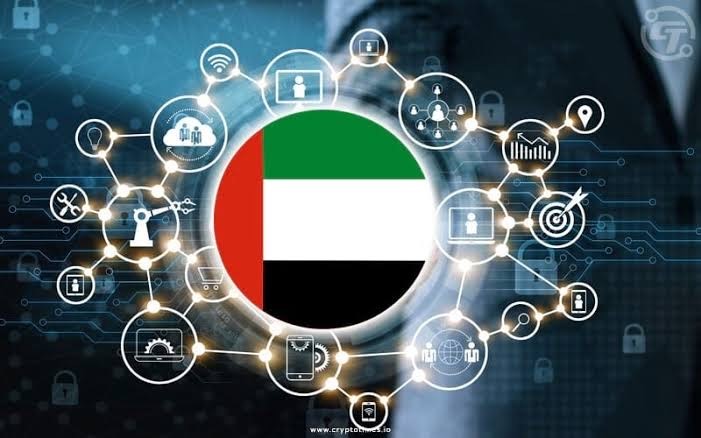While cryptocurrencies have captured the spotlight in recent years, the underlying technology, blockchain, holds transformative potential across various industries. Dubai, with its forward-thinking approach and commitment to innovation, is at the forefront of adopting blockchain technology to enhance real-world applications. In this article, we will explore the diverse ways in which blockchain is making an impact in Dubai, extending beyond the realm of cryptocurrencies.
- Streamlining Government Services with Blockchain
Dubai’s government has been a pioneer in adopting blockchain to improve efficiency and transparency in public services. The Dubai Blockchain Strategy, launched in 2016, aims to transform 50% of government transactions onto a blockchain platform by 2021. This strategic initiative seeks to reduce paperwork, enhance security, and streamline government processes.
The use of blockchain in government services is exemplified by the Dubai Pay Blockchain Settlement and Reconciliation System. This platform leverages blockchain to facilitate real-time settlement of transactions between government entities, reducing delays and mitigating the risk of errors.
- Transforming Supply Chain Management
Blockchain’s ability to provide an immutable and transparent ledger has found application in supply chain management. In Dubai, a city that thrives on international trade and logistics, blockchain is being used to enhance the traceability and security of goods throughout the supply chain.
The Dubai Blockchain Trade Finance Platform, developed by the Dubai Multi Commodities Centre (DMCC), facilitates secure and transparent trade finance processes. By integrating blockchain into the supply chain, Dubai aims to reduce fraud, enhance visibility, and streamline trade financing.
- Advancing Healthcare with Blockchain
Blockchain’s decentralized and secure nature makes it an ideal technology for managing healthcare data. In Dubai, blockchain is being explored to enhance the interoperability and security of healthcare records. The Dubai Blockchain in Healthcare Platform aims to create a unified and secure health information exchange system.
By leveraging blockchain, healthcare providers in Dubai can ensure the integrity and confidentiality of patient data, facilitate seamless information sharing, and enhance the overall quality of healthcare services.
- Real Estate Transactions on the Blockchain
Dubai’s real estate sector, known for its ambitious projects and rapid development, is embracing blockchain to enhance the efficiency and transparency of property transactions. Blockchain facilitates the creation of tamper-proof records, reducing the risk of fraud and ensuring the authenticity of property-related documents.
The Dubai Land Department’s (DLD) blockchain initiative, known as “Blockchain in Real Estate,” aims to create a secure and transparent platform for property transactions. This initiative enables stakeholders in the real estate ecosystem, including buyers, sellers, and government entities, to interact seamlessly and securely.
- Blockchain-Powered Identity Verification
Identity verification is a critical aspect of various transactions, and Dubai is exploring blockchain as a solution to enhance the security and efficiency of identity management. The “Digital Passport” initiative, led by the Dubai Future Foundation, aims to create a blockchain-based digital identity platform.
By leveraging blockchain for identity verification, Dubai seeks to provide individuals with greater control over their personal information while ensuring a secure and tamper-proof system.
- Dubai’s Crypto Exchange: MCX.AE
As Dubai embraces blockchain technology and its real-world applications, the city is also home to cryptocurrency exchanges facilitating digital asset transactions. One such platform is MCX, providing a user-friendly interface for buying and selling a variety of cryptocurrencies, including Bitcoin and USDT.
- Blockchain in the Education Sector
Blockchain’s ability to create secure and unalterable records finds application in the education sector. Dubai is exploring the use of blockchain to verify and authenticate academic credentials, reducing the risk of credential fraud and streamlining the verification process for employers and educational institutions.
The Knowledge and Human Development Authority (KHDA) in Dubai is actively exploring blockchain solutions for educational records, contributing to the city’s vision of becoming a knowledge hub.
Conclusion: Dubai’s Blockchain Revolution
Dubai’s commitment to innovation and its strategic vision for becoming a smart city have positioned it as a global leader in adopting blockchain technology. The real-world applications of blockchain in Dubai extend beyond cryptocurrencies, encompassing government services, supply chain management, healthcare, real estate, identity verification, and education.
As blockchain continues to mature and demonstrate its value in various sectors, Dubai’s proactive approach to integration ensures that the city remains at the forefront of technological advancements. The collaboration between government entities, private enterprises, and blockchain developers is driving Dubai’s blockchain revolution and contributing to the city’s status as a thriving hub for innovation.
By exploring these real-world applications, Dubai is not only embracing the transformative potential of blockchain but also setting an example for other cities seeking to harness the power of this groundbreaking technology.




